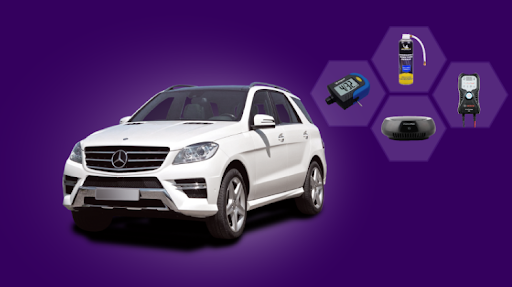
Starting a safe road journey is not an easy task. If you’re travelling by car to a distant location, you should pack all you require in cases where you don’t have a connection to the web, food, or safe drinking water.
Here are suggestions to help you remain safe and steer clear of any avoidable road trip catastrophes, carry a foot pump, before you embark upon the open highway, from double sure your car is in good shape to researching the route.
Knowing The Way Safe Road Journey
Before you travel, buy car accessories online and have a plan for your destination. Finding out whether these tourist spots are available to tourists during the epidemic and what precautions they have taken to protect visitors are crucial questions to ask when arranging a road trip. Organizing a car trip provides you with the chance to sketch out all the sights and sites you wish to see.
You won’t become as easily side-tracked by a map if you carefully research the path you want to take. Plan out the locations of any small towns along the route that have grocery stores and gas stations. When are non-essential shops and eateries available there? Although if you’ve got a medical aid kit that is completely filled and enough food, try to schedule a trip to the city.
Paper Maps And Offline Maps Safe Road Journey
Before the internet service drops, get maps for the destination. While Google Maps downloadable edition may be used when you don’t have access to the internet, Maps.me is a fantastic alternative.
However, if your cell phone battery runs out while you’re trying to use the GPS, you’ll be lost in the midst of nowhere Ville. Carry a map book, and mark important sites on it for a safe road journey. This way, should you become lost, you could be capable of finding yourself and returning to civilization using more primitive means.
Go On A Break
One of the riskiest things someone can do is drive when sleepy. Make a point of stopping every so often to move your legs and relax your eyes. Every 2 hrs or so, switch off driving duties if you’re travelling with a buddy or partner. And once you start to feel fatigued, stop immediately for a rest.
Take Stock Of Water
Avoid purchasing six 750ml bottles of packaged water every day; doing so is bad for the planet. Purchase some high-quality water cans, then get going.
Bring huge water containers full of water if you’re going to rural places, and plan on 10 liters of water per person each day.
Carry Enough Gasoline
Always bring additional gasoline jerry cans while operating a remote vehicle. If you do come across a petrol station, top up your car and water containers of fuel as soon as you can because they are rare and far apart in the woods and may not be available at all hrs.
It’s not always essential to use jerry cans of petrol when travelling in densely populated places. Knowing your route inside and out can help you prepare for these eventualities.
Pack Food For Two Additional Days For A Safe Road Journey
It’s possible that a few problems you run into when planning a week-long distance driving excursion cause your vacation to last two or three extra days. Consider, though, what would happen if you only brought food for seven days.
To be cautious, store up food that will keep you satisfied for an additional two days. If you’re getting low on supplies, stock up anytime you travel through a town – who guesses when you’ll be able to get your hands on some sandwiches again?
Look At The Weather Report
As the time to go draws closer, pay special attention to the forecasts for the places you intend to visit. You may want to re-evaluate your desire to travel if a tornado, earthquake, bad storm, or river hazard is present. Waiting till the current period of dangerous weather has gone can be a good idea if you possess the luxury of time. This will allow you to travel through the area securely.
If you utterly must travel during inclement weather, inform your loved ones and make as many phone calls as you can to let them know you’re okay.
Before You Leave, Inspect Your Car
If you’re not familiar with automobiles, take it to a nearby mechanic who can inspect it on your behalf and let you understand if anything needs fixing before you go on your lengthy vacation. The most important components to check are the following: the tyre pressures, the tyre’s sidewalls for cracks, the oil and coolant levels, the brakes, windshield, water, lights, and batteries.
Although they can seem like there are a lot of things to keep in mind, we assure you that doing so will help you have a richer outcome. Above everything, remember to pack a little bit of fun. Also, don’t forget to look for the travel essentials at CarOrbis for a safe road journey.






